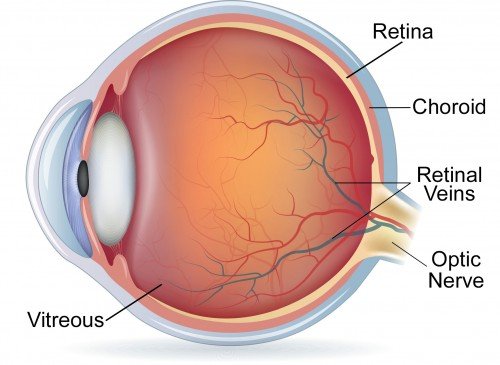Retina

TN Shukla Eye Hospital in Jabalpur is the biggest eye hospital in Jabalpur and does operations which are dedicated to all eye diseases.
The retina is a complex and crucial component of the eye responsible for converting light into signals that the brain interprets as vision. Positioned at the back of the eye, the retina contains photoreceptor cells, namely rods and cones, which detect light and colour. These signals are then transmitted through the optic nerve to the brain, enabling the perception of images. The intricate network of cells in the retina ensures precise visual information processing. Regular eye check-ups are essential to monitor retinal health, as conditions affecting the retina can impact overall vision. Understanding the role of the retina underscores its significance in maintaining optimal eye function and visual clarity.
At TN Shukla Eye Hospital in Jabalpur, we understand that your vision is invaluable. As a cornerstone of our specialities, our Retina Department is dedicated to providing world-class care and state-of-the-art treatments for a wide range of retinal disorders.
Retina Symptoms
Many retinal diseases share some common signs and symptoms.
These may include:
- Seeing floating specks or cobwebs
- Blurred or distorted (straight lines look wavy) vision
- Defects in the side vision
- Lost vision
You may need to try looking with each eye alone to notice these.
When to see a doctorIt’s important to pay attention to any changes in your vision and find care quickly. Seek immediate medical attention if you suddenly have floaters, flashes or reduced vision. These are warning signs of potentially serious retinal disease
Types of Common retinal diseases and conditions :
- Retinal tear. A retinal tear occurs when the clear, gel-like substance in the center of your eye (vitreous) shrinks and tugs on the thin layer of tissue lining the back of your eye (retina) with enough traction to cause a break in the tissue. It’s often accompanied by the sudden onset of symptoms such as floaters and flashing lights.
- Retinal detachment. A retinal detachment is defined by the presence of fluid under the retina. This usually occurs when fluid passes through a retinal tear, causing the retina to lift away from the underlying tissue layers.
- Diabetic retinopathy. If you have diabetes, the tiny blood vessels (capillaries) in the back of your eye can deteriorate and leak fluid into and under the retina. This causes the retina to swell, which may blur or distort your vision. Or you may develop new, abnormal capillaries that break and bleed. This also worsens your vision.
- Macular hole. A macular hole is a small defect in the center of the retina at the back of your eye (macula). The hole may develop from abnormal traction between the retina and the vitreous, or it may follow an injury to the eye.
Understanding the Retina of Eye:
The retina of eye is a thin layer of tissue located at the back of your eye. It contains millions of light-sensitive cells and plays a pivotal role in vision. It receives the light that the lens has focused on, converts the light into neural signals, and sends these signals to the brain for visual recognition.
Retinal diseases vary widely, but most of them cause visual symptoms. Retinal diseases can affect any part of your retina, a thin layer of tissue on the inside back wall of your eye. The retina contains millions of light-sensitive cells (rods and cones) and other nerve cells that receive and organize visual information. Your retina sends this information to your brain through your optic nerve, enabling you to see. Treatment is available for some retinal diseases in Jabalpur. Depending on your condition, treatment goals may be to stop or slow the disease and preserve, improve or restore your vision. Untreated retinal diseases can cause severe vision loss or blindness.
